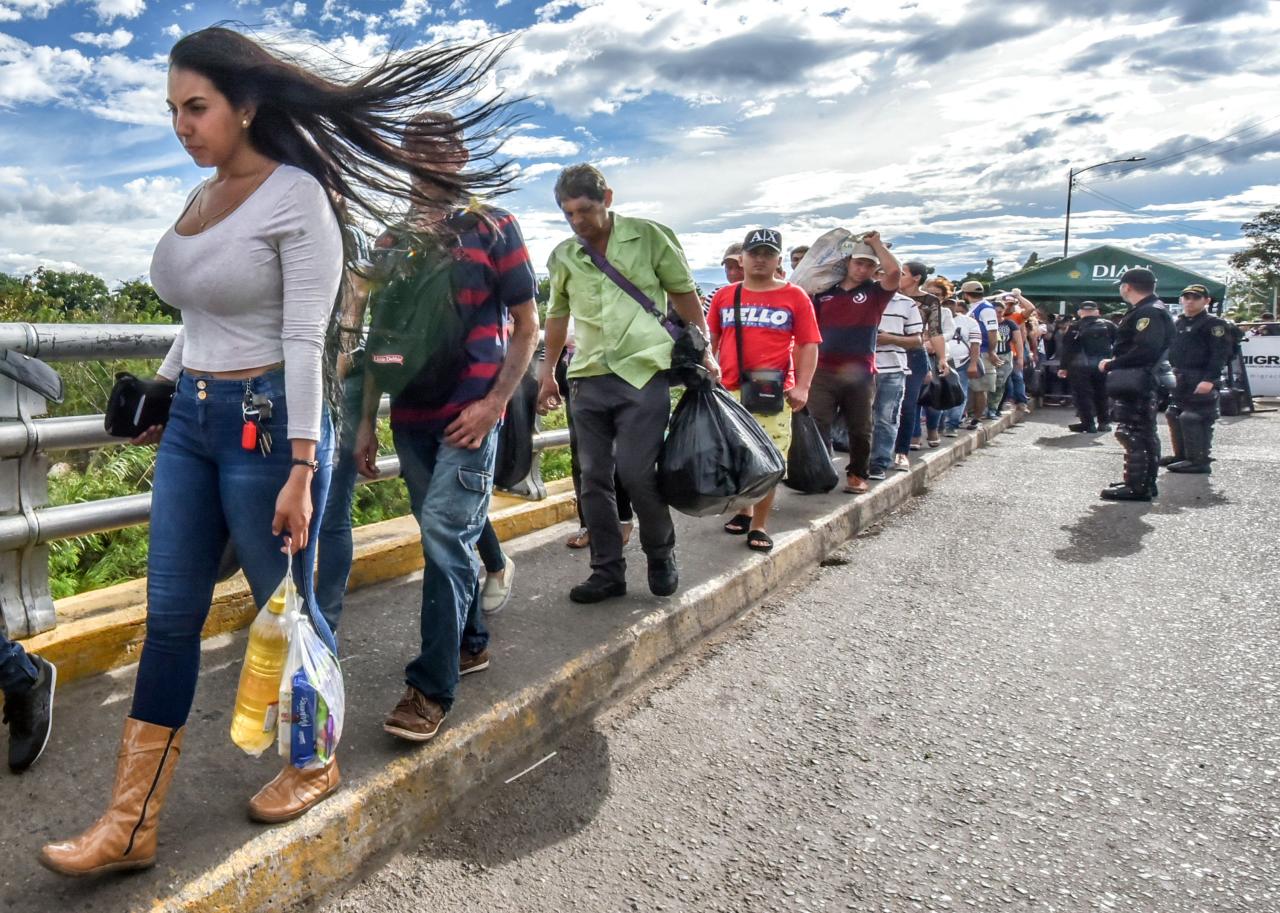The International Criminal Court has an open investigation into Venezuela for “crimes against humanity.” Venezuela’s president faces charges in the U.S. for “narco-terrorism.” And just two weeks ago, the Biden administration determined that the country “continues to face a severe humanitarian emergency” that warrants giving more than 400,000 Venezuelans temporary legal status in the U.S.
But this week, President Joe Biden determined that, inexplicably, conditions in Venezuela have improved so much that direct deportation flights are warranted. It’s an about-face that underscores his administration’s desperation to stop the massive influx of migrants at its southern border and project an image of control ahead of next year’s presidential elections.
“To think in good faith that we can safely return people seems to contradict our own government’s conclusions from a few weeks ago,” said Maureen Meyer, vice president for programs at the Washington Office on Latin America, a D.C.-based human rights advocacy organization. “It really shows that a lot of these determinations are based on political calculations.”
In stark terms, Biden’s logic goes something like this: Before July 31, the situation in Venezuela was so bad, his administration concluded that it couldn’t in good faith deport Venezuelans. In a long report justifying the decision, it concluded that Venezuela suffers from “human rights violations and abuses and high levels of crime and violence, that impacts access to food, medicine, healthcare, water, electricity, and fuel, and has led to high levels of poverty.”
But after July 31, the situation had remarkably improved, according to administration officials, although they skimped on the details. “We have made a determination that it is safe to return Venezuelan nationals who’ve arrived in the United States subsequent to July 31st and do not have a legal basis to remain here,” Homeland Security Secretary Alejandro Mayorkas said at a press conference in Mexico City on Thursday.
So what changed? A landmark agreement with Venezuelan President Nicolás Maduro that would allow for direct deportation flights. ”We have now successfully negotiated an agreement with the country of Venezuela to repatriate those Venezuelan nationals who have arrived subsequent to July 31st and do not have a basis to remain in the United States. We are a nation of immigrants and we are a nation of laws,” Mayorkas said.
The agreement is a big deal, because the countries haven’t had diplomatic ties since 2018, when former President Donald Trump supported Juan Guaidó’s failed attempt to unseat Maduro. That decision hamstrung the U.S.’s ability to deport the sea of Venezuelans who fled the country in subsequent years.
The Trump administration deported some Venezuelans through Trinidad and Tobago—a policy that Biden criticized as a candidate. But once he took office, he also continued deportations of Venezuelans, this time through the Dominican Republic. But the resumption of direct deportation flights means the U.S. can return Venezuelans by the thousands instead of hundreds—to what is effectively a narco state.
More than 7.7 million Venezuelans have left their homes in recent years, driven by abject poverty, authoritarian rule, and drug-fueled violence. While a majority moved to Colombia and other Latin American countries, a surging number have sought protection in the U.S. More than 50,000 Venezuelans arrived at the U.S.-Mexico border in September, an astonishing number that has put the Biden administration on the defensive.
Rumors and legal cases alleging drug-trafficking and government corruption swirled around the socialist regime of former Venezuelan President Hugo Chávez, who governed from 1999-2013.
And when his loyal disciple Maduro replaced Chávez, matters only worsened. It wasn’t until 2020, however, that the U.S. government actually filed charges against Maduro, accusing him of running a “narco-terrorism partnership” with the former FARC guerrilla group for at least two decades.
“For more than 20 years, Maduro and a number of high-ranking colleagues allegedly conspired with the FARC, causing tons of cocaine to enter and devastate American communities,” according to the U.S Department of Justice.
Geography helped the rot set in. Colombia—the biggest cocaine producing nation in the world—neighbors Venezuela, which for decades has been a transit hub for coke that moves across the two nations’ porous shared border. State-subsidized gas from the Venezuelan regime, before its acute economic and social crisis set in, was smuggled across the border into Colombia to help with the processing of cocaine.
The relationship Venezuela’s political elite and military have with the drug business is so established that the name the Cartel of the Suns was established in the early 1990s as a blanket term for the dynamic, and originated from the single sun insignia worn by members of the military and National Guard.
Venezuela has repeatedly failed to carry out its anti-narcotics obligations, and Maduro has failed to take any “meaningful action” to weaken the international cocaine trade, according to the International Narcotics Control Strategy report published by the U.S government. The nation is also a major source of illegally important precursor chemicals for methamphetamine production.
The U.S. government has been selective in how it has vilified narco-corrupted states in Latin America. It worked closely with former Honduran President Juan Orlando Hernández as a key anti-narcotics and migration ally until he left office last year, after which he was promptly indicted on drug trafficking charges and extradited to the U.S., where he is awaiting trial. He is accused of aiding and abetting the powerful drug-trafficking mafias who helped move drugs from Colombia to the South to the U.S. in the north under his watch.
Related posts:
Views: 0
 RSS Feed
RSS Feed

















 October 7th, 2023
October 7th, 2023  Awake Goy
Awake Goy 
 Posted in
Posted in  Tags:
Tags: 
















